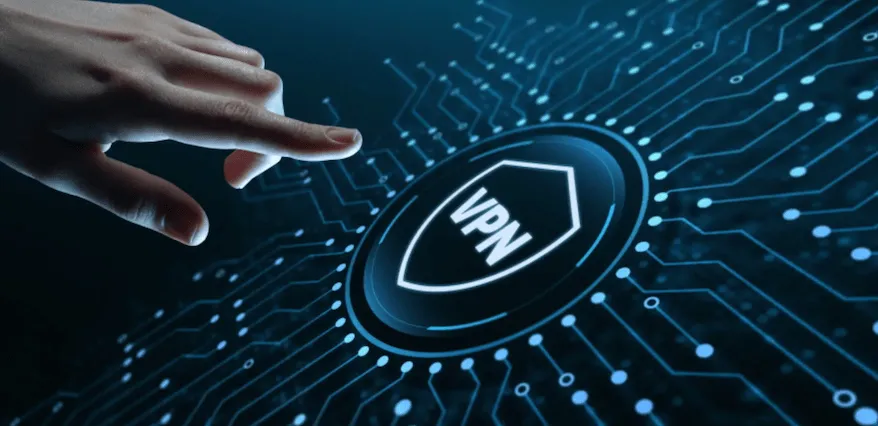
Web developers play a huge role in how we use the internet. It's thanks to them that apps and websites have become so easy to use. But like anyone using the internet, web developers need tools to help them in their work and provide security to prevent data breaches.
One fantastic tool web developers can use is a VPN. This article will explain exactly how a VPN can help developers. Let's jump in!
Provides data encryption
Data breaches are very common as hackers constantly try to access sensitive information that could benefit them. Web developers usually have access to all sorts of sensitive data like customer info or patents. If this information somehow became public, it would lead to terrible consequences.
A VPN provides data encryption for all data coming to and from the device. This way, all sensitive data that goes through the dev team's devices will remain protected and inaccessible to threat actors.
Allows testing from different countries
Testing is a huge part of a web developer's job. Developers test the speed at which the site loads, whether there are restrictions, and how the site appears from different geo-locations. They may also create different versions of the same site for different countries.
This is common with organizations that want to build their presence in different locations to accommodate their vast clientele. A VPN allows web developers to test whether the site works as intended everywhere in the world.
Protects intellectual property
Web development is more than just writing code. What comes out of that code is websites, apps, and other intellectual property that needs to be protected. A VPN plays a role in protecting intellectual property by encrypting data and masking the IP address.
Supports remote workers
You're unlikely to find development teams operating out of the same space. Teams are usually spread out across different cities, countries, and even continents. That's why teams must be able to transfer data and information safely across multiple networks.
In theory, remote workers can work from wherever they want. However, that's a considerable risk, as the WiFi at cafes or co-working spaces isn't always secure enough to support sensitive work like web development. But, with a VPN, team members don't have to worry about public networks. All internet traffic will be encrypted.
On top of the main benefits like data encryption, some VPNs have ad-blocking and anti-malware capabilities. This will make it less likely for employees to fall for adware, phishing, and other scams.
But before you pick your VPN carrier, consider comparing traditional and cloud VPNs. Cloud VPNs, for example, have a global reach and are more suitable for remote teams.
Set up your own VPN or buy?
You have two options when it comes to VPNs: make your own, or buy one. For sensitive work like web development, making a VPN may be more suitable. It adds way more control over how the VPN works. It also removes the risk of giving a third-party access to sensitive data.
One big downside, however, is that you won't be able to "travel" to different countries. Anonymously visiting competitor websites will also become more complex.
Buying a VPN may sound unsafe for web development. Still, reputable VPNs do exist (like NordVPN), and the chances of a data breach are extremely low. On top of that, they are much easier to set up, especially if your team uses many devices.
Key points to consider when buying a VPN
- Connection speed
Speed is perhaps the most important thing to consider when choosing a VPN. A slow connection is unacceptable for dev teams. Look for VPNs that can match or come close to your regular internet speed. The VPN has to be quick and responsive to satisfy the needs of a web dev team.
- Data and devices limit
Another thing to consider is data usage limits and the number of devices you can use. Most VPNs have multiple offerings to match different needs. Unlimited data and devices are necessary for most web development teams. You don't want to run out of data in the middle of an important project.
Setting up all devices with a single account is easier and cheaper than doing it separately. If your team uses several devices other than a laptop (like phones and tablets), make sure they're supported as well.
- Kill switch
The kill switch feature stops all internet traffic when the connection between the VPN and the device is lost. Once the VPN app detects that it's been disconnected, it will instantly shut down the internet connection to prevent exposure. The kill switch could be very useful for web developers to avoid any unencrypted traffic.
- Server network
The broadness of a VPN's server network will determine how many countries you'll be able to test your website from. If the site is meant for everyone regardless of location, this becomes an essential criterion when deciding which VPN to use.
No VPN is perfect. Use these four points as a reference during your decision-making process. But remember that it's okay to make sacrifices in some areas, as long as your business needs are still met.
Final thoughts
Web developers need all the help they can get to secure their work. A VPN can help developers encrypt data and protect sensitive information. It's also a great tool for testing websites. A VPN provides around-the-clock protection for remote dev teams and allows team members to work from anywhere they want, regardless of whether they're using public (and unencrypted) WiFi or not. In today's remote work environment and high rates of cybercrime, using a VPN is an absolute must.
